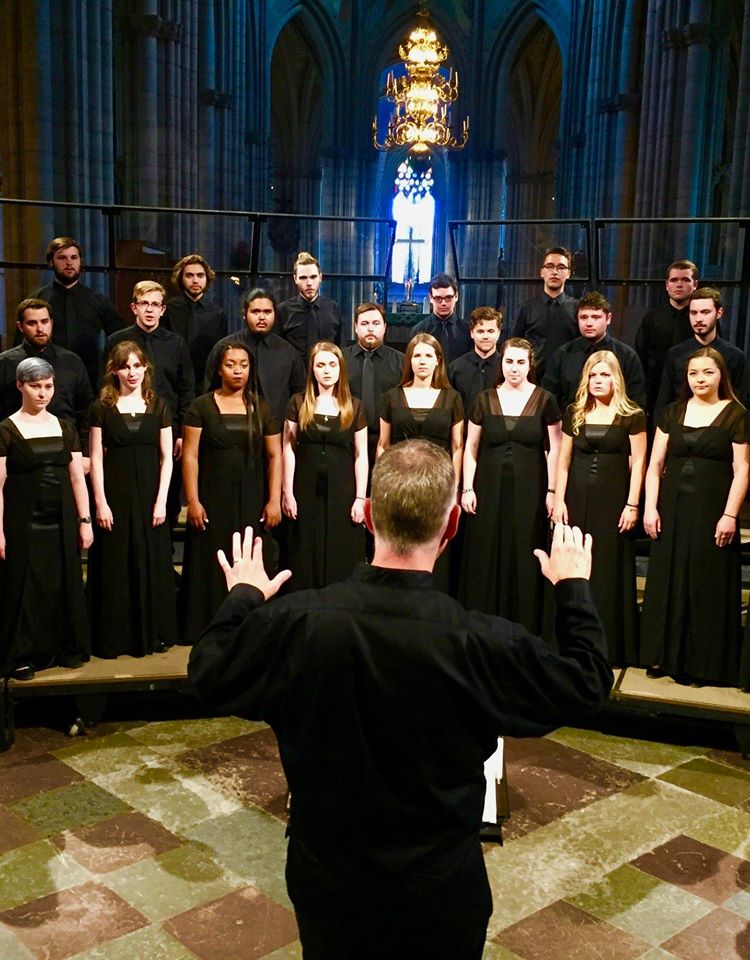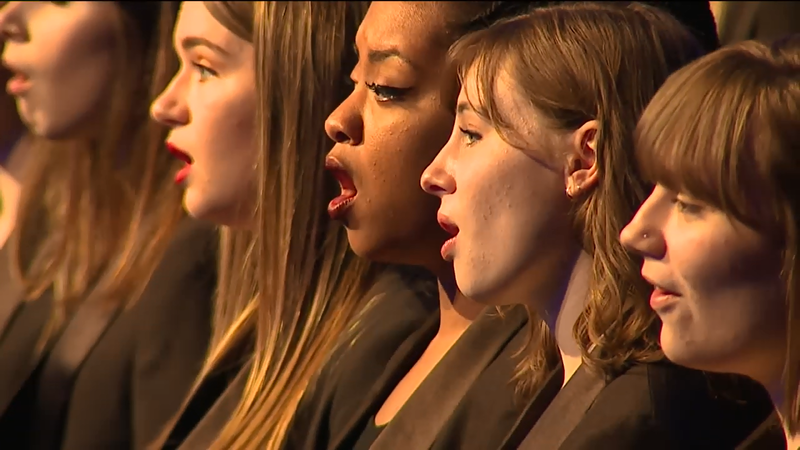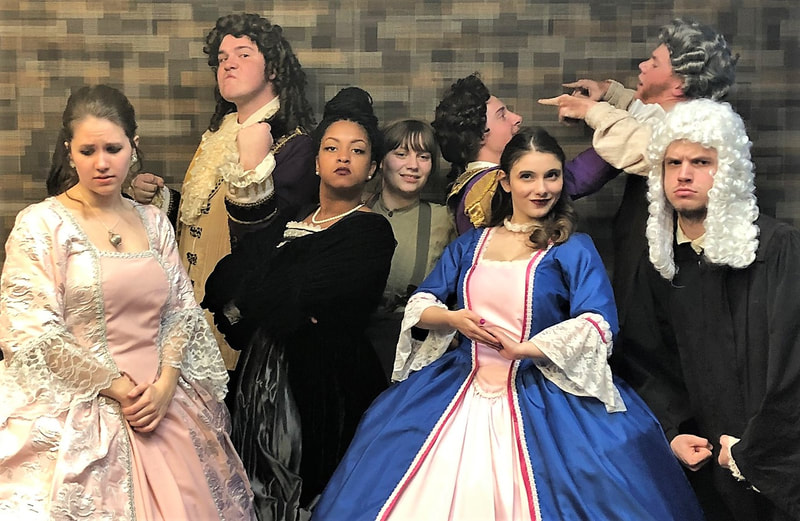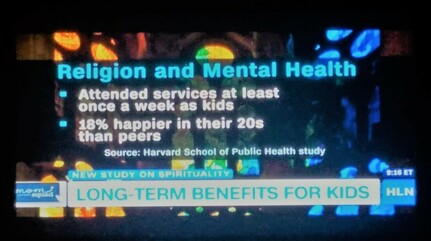|
by Michael Edgar Myers, Founding Director
Cami Myers is part of Kingdom Impact Theater Ministries, the Next Generation, though she’s been with us awhile.
Maybe you've seen her greeting people at shows at our hospitality table, or sitting in singing with the ladies’ worship ensemble, Chos3n. She’s also behind the scenes (or out front) photographing our performances, such as those she did for “Freedom Song” promotions. All of those activities she began as a high school intern. She’s now preparing for her senior year of college, studying psychology and creative writing, wondering how to use them in the "adulting" world to come.
While those disciplines are her major and minor studies, Cami's passion is music.. That passion has brought amazing tranquility -- grace -- to her transitions. Music has been her salve amid 8 A.M. classes, mid-terms, scrambling for transportation to jobs that help her tuition and social responsibilities. Then there’s those sorority things she does – like rush, and parties, and musical competitions – just because, well, hey, she’s in college.
Cami was accepted into the university’s concert choir as a freshman, a rarity; and has since expanded her passion into regional and international tours, on-campus ensembles, opera dalliances, cabaret musicale, and a vocal quartet formed with three girlfriends. Although her school is not a Christian college, it does have Protestant foundations and community church links. The university choir repertoire often includes songs of faith -- such as Negro spirituals and classical compositions based in Biblical scriptures. On occasion, Cami's colleagues have turned to her for further insight into the lyrics.
Though not a music major, Cami's passion for choir has been an emotional outlet.
As with many college students away from home for the first time, things of church life took a back seat once freed from the weekly family obligation of Sunday morning attendance.
College is, among other things, a time for church kids to explore and, as John writes, "test every spirit," as the students interact with peers from other regions, beliefs, faiths. College is a test, as Paul says, to "work out your faith," which in church kids' lexicon is, "make it my own." College is a parental test. It's the first gauge of Old Testament Proverb to "train up a child in the way he should go," while reverting to early parenthood lessons of letting go: "How is my kid going to ride when I take off the training wheels?" VIDEO INTERLUDE: "God Is a Rock in a Weary Land" The Search for Self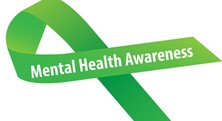
With two years of college life secured, this year she resumed singing in worship ensembles, both on campus and as an element of an off-campus student ministry leader job she secured.
Through these experiences, Cami has been making personal discoveries known in earlier generations as, “Finding herself.," a journey one of her grandfathers contended could be done less expensively. When a collegiate son was explaining his less-than-zealous academic performance while away at school, Cami's Grampy told him, “Find yourself on your own dime.” However, the cost of this self-exploration cannot be measured in coinage, but in dollars and sense. It's a reason two of Cami's guides for post-graduation decision ("To College, or not To College?") were her youth pastor and an older cousin who each took off a year and worked before continuing education. The Gap Year, as it's known, is often suggested for talented students who sometimes have so many choices they are overwhelmed and lose focus on why they're going to college. Cami, however, knew why she was going, and that going right away was to obtain discipline to balance her self-reliance. She also knew she wanted to study psychology. Part was to understand her own independent streaks, but mostly to grasp why she, and so many of her contemporaries going back to middle school, respond as they do, battling a bevy of emotion issues to seemingly mundane matters. Not just to understand why, but do something about it. That quest has led her to compose a series of essays for her peers and their families with suggestions about how to manage the emotional challenges that affect this phase of their lives. Cami has been posting the essays in social media in conjunction with Mental Health Awareness Month, and we have edited four of them into a compilation called, “A Collegian’s Guide to Mental Health.” We were intrigued by how many "collegiate" scenarios we'd personally experienced in ministry. #HolySpiritMoments
We have been awed by God’s timing of when these writings came to our attention at Kingdom Impact Theater Ministries in relation recent work we're doing on the topic, and previous information we had.
Because we do not believe in “coincidence,” we call such collective timing #holyspiritmoments. While the tips in Cami's four missives are not directly “Christian,” meaning they don’t offer Biblical solutions verbatim, we see scriptural influence behind many. Therefore, we’re making the essays accessible not only to provide a checklist of things to do in the face of mental health matters. We make them accessible to re-emphasize how scripture and its artistic expression should not be overlooked in the spiritual warfare for mind and soul, as well as body, especially among younger generations. For the weapons of our warfare are not of this world. Early Cami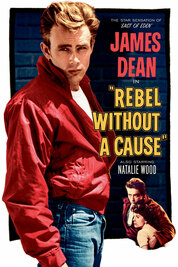 James Dean withstands parents' bickering in classic "Rebel" scene. James Dean withstands parents' bickering in classic "Rebel" scene.
Cami grew up attending and serving in the church. At age 15, she chose to be baptized. At the same time, she and her BFFs dealt with traditional teen-aged angsts of puberty. “Most of my experience is with anxiety and depression,” she writes.
In some ways, these feelings and responses are not terribly different from previous generations of teen-agers since James Dean was the first “Rebel Without a Cause." But James Dean’s duress was not intensified by endless electronic communication, decreased human conversation, relentless scholarship applications, or personal pronoun declarations. James Dean was bullied; he wasn’t cyberbullied. The angst of teens in our era is chronicled in headlines about suicides, social media bickering, and vengeful violence. It’s reflected in escapist behaviors as drinking, cutting and, most recently, vaping (e-cigarette smoking). That these were not Cami’s challenges made her moods more confusing. Were her swings natural emotions perhaps inherited or environmental (nature v. nurture)? Were they misunderstood or dismissed (“It’s puberty. You’ll grow out of it.”) But such questions piqued her interest in psychology, desiring to returning to high school as counselor. She hopes to be better equipped to help teens manage the kind of issues she encountered but felt neither herself, her parents, nor her church was skilled enough to articulate at the time. Ministry Stressors
That her church family had difficulty responding to students’ stress is telling, and not unique. While teens often bend the ears of youth pastors or college-aged interns, the range of issues and number of people can overwhelm young theologians, who are equipped to teach the gospel, yet feel under-equipped to ride such emotional rollercoasters. Student stress plays a role in youth pastor burnout.
At the same time, well-intended ministry leaders and older congregants can add to teen tension. While the power of Scripture and prayer are undeniable in thwarting enemies, in today’s environment of extracurricular scholastic activities, emphasis on serving, memorizing verses and “praying more” may not be received as an antidote, but added obligation. Indirect behaviors of church personnel such as conflict between leaders (especially worship ministries), overheard comments about members (clue: bathroom stalls are not cones of silence), and judgmental social media “sass” on Christian group pages or individual pages (how much complaining is on your threads?) create confusion among individuals looking to churches for grace, mercy and guidance. Nevertheless, healthy participation in ministry is a strong foundation for combating societal stress. Raise Up a Child
On a rare Sunday morning when we didn't have to go to a morning Service of Worship, God sent us a message, anyway. Not through a streamed church sermon but through a "prophet" with whom we seldom communicated: a Sunday morning TV news magazine. We watched because we were flipping through the remote in a hotel room in Cami's college town where the KIT Ensemble spent the night after attending her choir concert the night before.
The show was background noise until we heard the reporter's "stay-tuned" tease: “Religious upbringing linked to better health and well-being during early adulthood.”
The story gave details about a recent study by the Harvard School of Public Health that pointed out the positive influence of worship, prayer and spirituality – whatever the faith – on children’s development. Seeing as how the choir concert included a powerful post-Civil War acapella selection, we considered calling this a #holyspiritualmoment.
And As We Close
Although Cami did not specifically state them, we discovered several biblical themes running through the four essays.
Therefore, we framed these practical steps with Biblical examples for non-church readers. It's similar to what Dr. Gary Chapman has done with making “The Five Love Languages” applicable to schools and corporate individuals as well as church folk. Our hope is that this combination may strengthen a church’s efforts strengthen adolescent mental health and faith scriptural foundation that may be used in Sunday schools, small groups or student ministries. You'll read those connections in the next edition. Until then, keep too blessed to be stressed.
0 Comments
Leave a Reply. |
The KIT 'n' Kaboodle BlogThe essays here are culled from our travels, conversations, worship experiences and discoveries. Many are reprints from our newsletter, The KIT 'n' Kaboodle, or Facebook notes over time. They're written by our ensemble, Garlan Garner, Michael Edgar Myers or Vikki J. Myers -- solo, or collectively. Archives
June 2024
Categories
All
|
Proudly powered by Weebly


